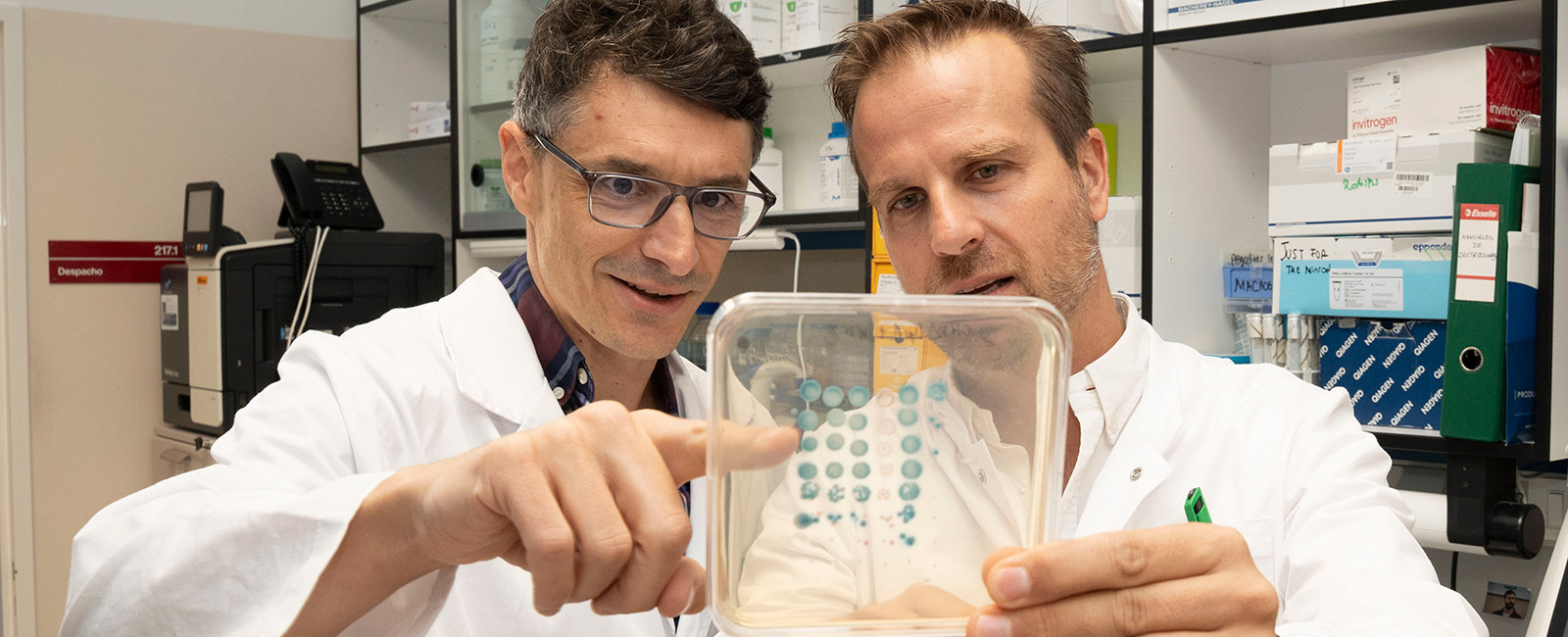RESEARCH TEAM
Principal investigators: José Antonio Escudero García-Calderón (Universidad Complutense de Madrid) and Álvaro San Millán Cruz (Instituto de Biotecnología Microbiana, CNB-CSIC).
Team members: Lucía García Pastor (Universidad Complutense de Madrid) and Laura Ortiz Miravalles (Universidad Complutense de Madrid).
DESCRIPTION
The use of antibiotics has enabled bacteria to evolve, adapt and acquire resistance to this drug group. As a result, bacterial resistance to antibiotics has become a critical issue in biomedicine. We assume that bacteria cannot easily become resistant in the absence of antibiotics, and that it is only their presence that facilitates resistance, and so strenuously avoid any use of antibiotics that is not strictly necessary (in the case of viral infections, for example). At the same time, the search is on for alternative ways to combat bacterial resistance, such as using molecules that inhibit the resistance mechanisms. Despite these efforts, antibiotic resistance is rising yearly. For the evaluation committee, the line of study proposed by the team led by José Antonio Escudero is truly innovative as well as getting right to the root of the problem, by seeking to interfere in the evolutionary process of bacteria and make it “unrewarding” for them to become resistant to antibiotics.
“Each step towards multiresistance has an associated cost. In other words, when bacteria capture a new resistance gene, it has consequences or effects on the organism that may be positive, negative or a mixture of both,” Escudero explains. “The threat which that organism then poses to us will depend on the final balance between positive and negative consequences. What we want to do is identify these consequences for a comprehensive collection of resistance genes, so we can design interventions that reduce the positive ones and increase the negative ones. By this means, resistance will cease to be an evolutionary advantage for the bacteria, so will not be worth acquiring.” To make this happen, the two PIs will pool their efforts and resources, since one has a large collection of antimicrobial resistance genes and the other is an expert in plasmid biology and evolution.
The evaluation committee was favorably impressed by the profile of the two project PIs, who bring considerable experience in the field of antibiotic resistance and complementary visions of experimental evolution and molecular biology.

